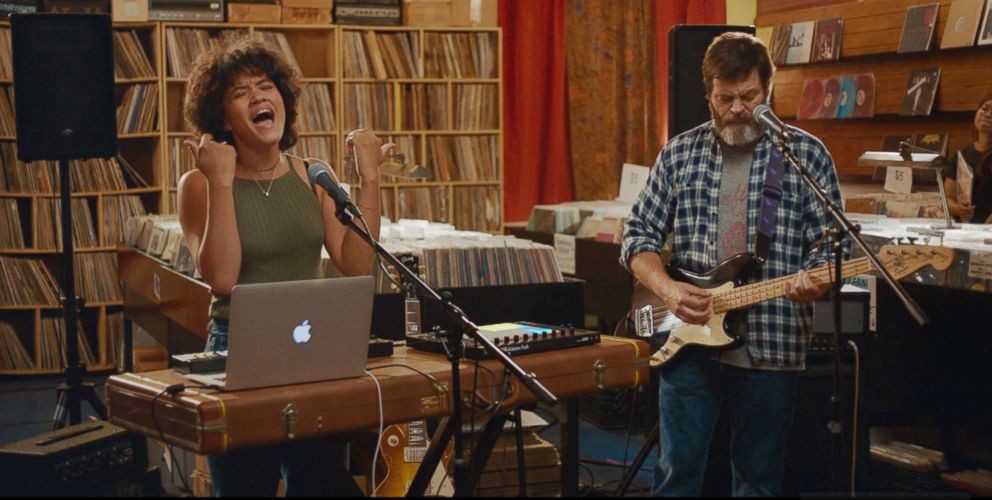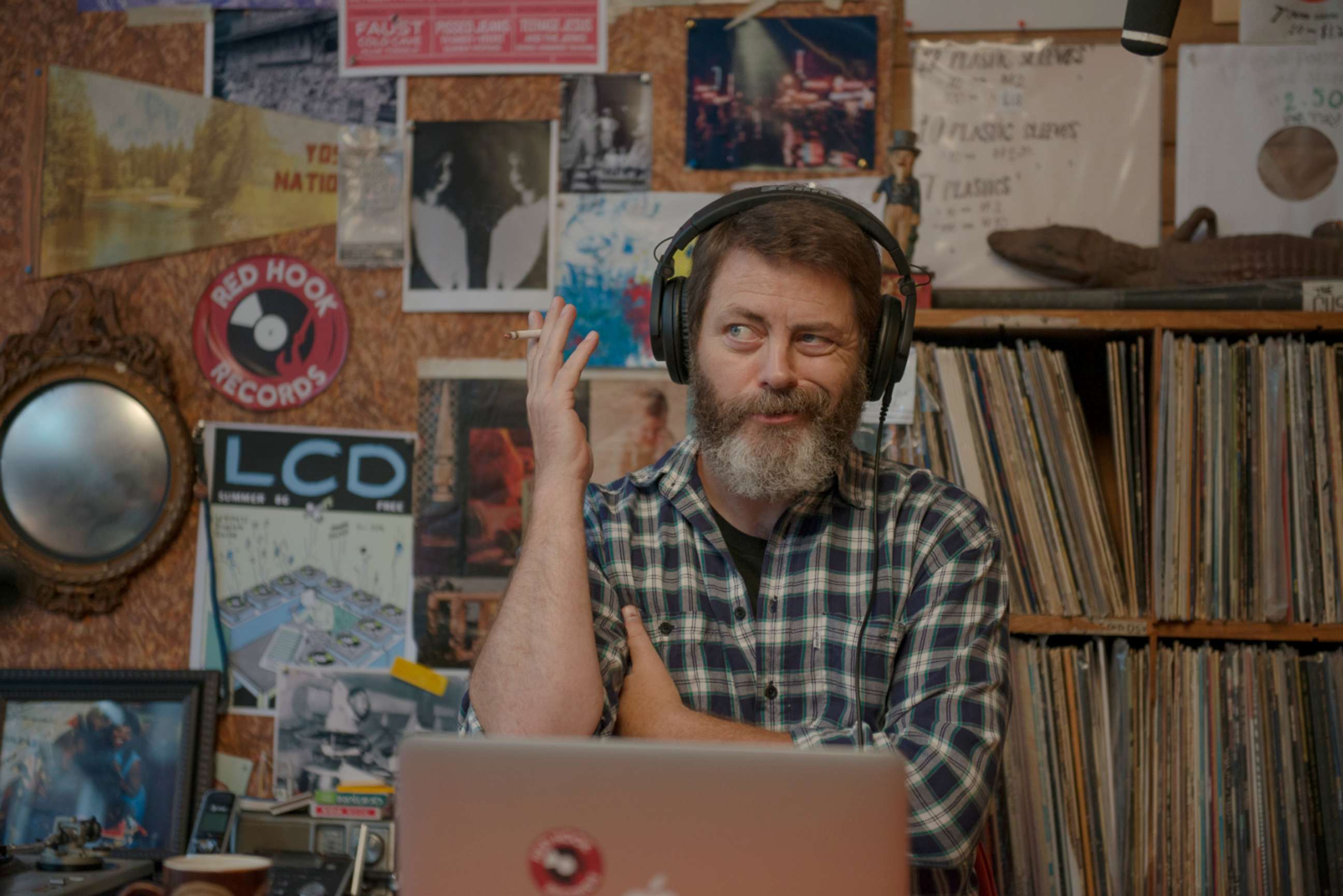Ahead of Oscars 2019, hidden musicals in Hollywood are increasingly in plain sight
There's a new kind of musical on the rise in Hollywood.
New York -- As the annual string of entertainment awards shows continues in procession toward the Oscars, it's worth taking a moment to reflect on all the melodies hanging in memory this past year.
In line with the 2016 blockbuster success of La La Land and the 2017 live action reboot of Disney's animated classic Beauty and the Beast, 2018 brought to the box office a continued resurgence of the movie musical.
Among the varied offerings were the indie origin story Blaze, the recording artist vehicle A Star is Born, and the jukebox sequel Mama Mia! Here We Go Again.
Though Hollywood has long mined the successes of Broadway, attempting, for better or worse, to preserve in film a transfiguration of the stage, there is magical originality to be found in music-driven stories conceived solely for the screen.
Many people can't stand musicals because they doubt anyone's life could be filled with events significantly dramatic to require communication in choreographed, syncopated or orchestrated music. If we can agree that an opera is a drama composed entirely of song, then perhaps a musical could be described as a narrative in which the actions of the plot are punctuated by bursts of song and dance.
A hidden musical can then be described as a story in which every moment of performance is motivated by a demand of the plot, where singing is the most logical extension of the narrative and where not to allow a character the chance to make music would seem entirely strange.

There are plenty of films in which one or more songs play a pivotal role in the plot, but which treat the music more as a break from the action, a sort of play within a play winking at the larger real-world inspiration for the story.
Examples such as Inside Llweyn Davis and Crazy Heart, Almost Famous and Blues Brothers are just a few that come immediately to mind.
There are also terrific examples of music-driven dramas, films steeped in song but not singing to guide the narrative, such as Amadeus, Whiplash, Drumline and Shine.
Though near neighbors, I would argue that hidden musicals are a distinctly separate genre from both these and artist biopics such as Bohemian Rhapsody, Ray, Walk the Line, The Doors, Get on Up, Evita, Straight Outta Compton or Miles Ahead, movies about musicians targeted at music lovers.
Similarly, I would rather not lump together singer-crossover vehicles such as A Star is Born, The Bodyguard or 8 Mile, great films that often times leverage the celebrity of a charismatic voice to sell a soundtrack to a fan base.
On a recent Friday night, after a long week of terrible politically divisive news coverage, I cooked a warming pasta for my wife and settled into our couch with the ecstatically beautiful movie, Hearts Beat Loud, a studied perfection of the hidden musical form.
The film combines the heart-wrenching performances of Nick Offerman and Kiersy Clemmens as father and daughter, with a veteran supporting cast of characters including Ted Danson, Toni Colette and Blythe Danner. It's the story of a young woman caught between her desire to live a life of sustained reasonability and her father's dream of starting an indie band with his remarkable songstress of a daughter.
The first extended montage of music writing between the two of them brought me to tears of joy, an experience repeated for various reasons several more times throughout the remainder of the story. This is perhaps the promise of the hidden musical, an overwhelming emotional catharsis captured in the visualization of an artist's journey.

Hidden musicals are films surprisingly laced with songs performed as defining plot points consistent with the imaginary world of the story. The audience's collective suspension of disbelief is not shattered by the complete rendition of one or more pieces of music.
They are often filled with a cast of surprising talents whose emergent success on screen allows the audience to feel the rush of performance. Recent movies like Geremy Jasper's Patty Cake$ or Craig Brewster's Hustle and Flow, Jason Moore's Pitch Perfect and John Carney's kindred spirit trilogy of Once, Begin Again and Sing Street, all fit the bill.
These films share a common narrative strategy: the characters are in total possession of the means of production by which their music is made. Their instruments and voices are the MacGuffin moving the story forward.
As an audience member, when I'm watching a movie with Eminem or Lady Gaga cast as the lead, I always expect at some point they will do what they do best. While viewing Hearts Beat Loud, I allowed myself to be swept away by the surprise of discovery, rooting for the father-daughter duo to climb the ranks of fame and fortune fueled by the power of song.
Musicals may not be for everyone, but hidden behind a lyric or tune is often a tale well told.




